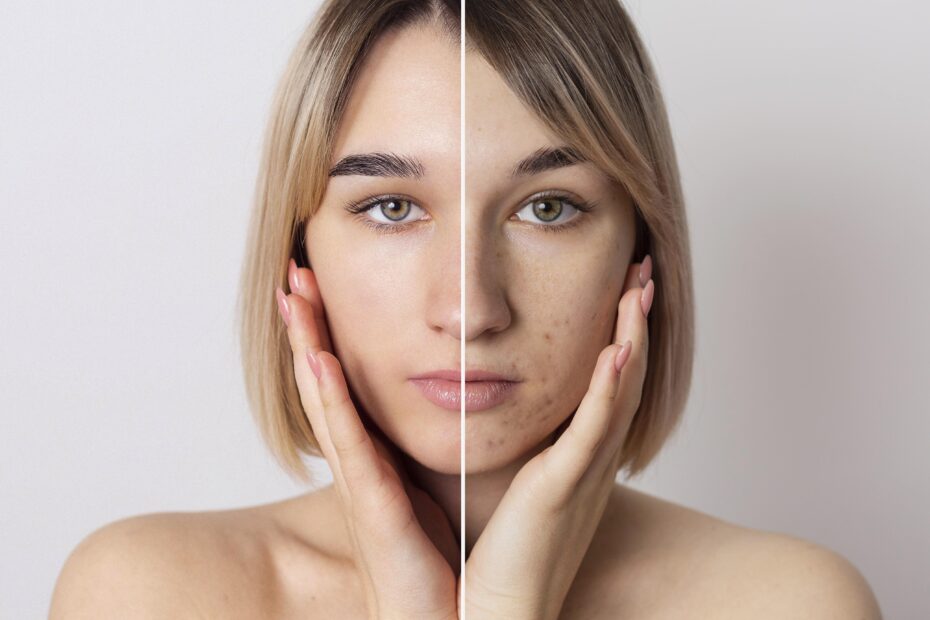Aging is a very natural process through which all living beings go through. It is when the multiplication rate of the cells falls and the body’s capacity to heal and regenerate itself decreases. The body’s organs and other tissues then cease to function as efficiently.
The aging process affects the body, mind, environment, social circle, etc. Therefore, coping with and understanding the body’s changes is essential. Seeking medical care on time for any problem and managing lifestyle diseases well are essential to a better quality of life. Get regular health checkups and video consultations with Medintu, so you are always on top of things.
Below is a system-by-system approach to how the body changes during aging:
- Skeletal system and muscles: Bone density decreases, and muscles undergo a reduction in strength and flexibility. The changes in bones and muscles can make you more prone to falls and fractures and even cause stability and coordination problems.
- Heart and blood vascular system: the arteries throughout the body under changes called atherosclerosis, which is the hardening or stiffening of the artery. The blood pressure usually increases, affecting the heart, which can change and increase in bulk to compensate for the increased workload.
- Gut and Alimentary Canal: constipation is a common problem. It may be due to decreased activity or lowered appetite, less water intake, and also the effect of medications taken to manage other diseases.
- Urinary System: older adults may develop a problem due to the inability to retain urine and empty their bladder fully because of decreased Control over bladder muscles. This urinary incontinence may be because of weakened bladder muscles. In males, the prostate may significantly enlarge, leading to trouble with the urinary stream and urine retention.
- Hearing and Vision: Aging affects vision in several ways, including cataract formation. A cataract can cause vision clouding and difficulty in seeing nearby objects.
Also, aging affects hearing, and the ability to hear higher pitch sounds may be affected.
- Skin: The fatty tissue below the skin decreases, and the skin becomes less elastic and prone to easy bruising. Wrinkles, sagging of skin, and age spots may become more common.
- Body Metabolism and Weight: Body metabolism slows, and weight gain becomes easier.
- Sexual Health: It also declines as the libido decreases and changes in the vagina, like vaginal dryness and itching. In the penis, erection may become a problem. The pleasure of sexual experience decreases.
- Memory and Cognitive Functions: Forgetfulness becomes more common, and cognitive functions may decline as the brain starts to atrophy. The changes in the brain may speed up by other degenerative diseases like Alzheimer’s and parkinsonism.
- Dental Health: Teeth lose enamel, and become more prone to caries, gum line starts receding, causing teeth to fall out, as well as poor oral hygiene.
- Social Circle: Your ability to go out and interact with others and your social circle decreases. Keeping up with the surroundings can become challenging, and one needs to be more in touch with new ideas and the changing world.
- Mental Health: Mental health in old age is a priority as loss of job, physical hardships, and breaking away from the family structure can lead to decreased social security and loss of financial independence and also become a cause of anxiety, depression, and other mental health conditions.
How to adapt to changes during old age?
The transition to any new phase of life can be tricky and challenging. However, knowing something about it can help get a sense of direction and become aware.
The following steps can help you handle the changes of old age better and have a smoother journey through aging.
- For better cardiovascular health:
- Make physical activity a part of your daily routine.
- Control and manage stress with meditation, and yoga.
- Eat a healthy diet full of vegetables and fruits.
- Get adequate sleep to relax and heal your body.
- Stop smoking and alcohol to preserve the health of your vessels.
- For better skeletal and muscular systems:
- Include a mild form of physical exercise in your routine.
- Take good calcium and vitamin D to keep your bones and joints strong and healthy.
- For a healthy digestive system:
- Eat a fiber-rich diet. Be sure to eat all meals. Avoid packet food.
- Drink lots of water.
- Do not force yourself to defecate but do not ignore the urge to pass motions.
- For better urinary system health:
- For better control over the urge to urinate, practice kegel exercises.
- Visit the bathroom often.
- Get your prostate checked early in case of any problems while urinating.
- For better brain health:
- Keep challenging your mental abilities by playing games, reading, and taking in new experiences.
- Stay physically active.
- Get good sleep.
- Do not smoke or drink.
- Eat a healthy diet.
- Interact with new people and ideas.
- For better eyesight and hearing:
- Go for regular checkups of the vision and hearing.
- Protect your eyes from the sun and wear spectacles to avoid accidents.
- For better dental health:
- Brush and floss on time.
- Regular dental checkups and not ignoring dental issues.
- For better skin:
- Use a moisturizer and mild soap.
- wear sunscreen when outdoors.
- For better weight control:
- Eat in awareness.
- Control your portion sizes.
- Eat a healthy, fresh, nutrition-rich diet.
- Do physical exercise.
- For better sexual health:
- Discuss concerns about the same with your partner.
- Use lubrication.
- Include physical exercise.
- For better mental health:
- Undertake activities that give you happiness.
- Develop new hobbies.
- Spend time with family.
- Speak to a mental health professional.
- Develop new hobbieSpend time with family.
- Speak to a mental health professional.

